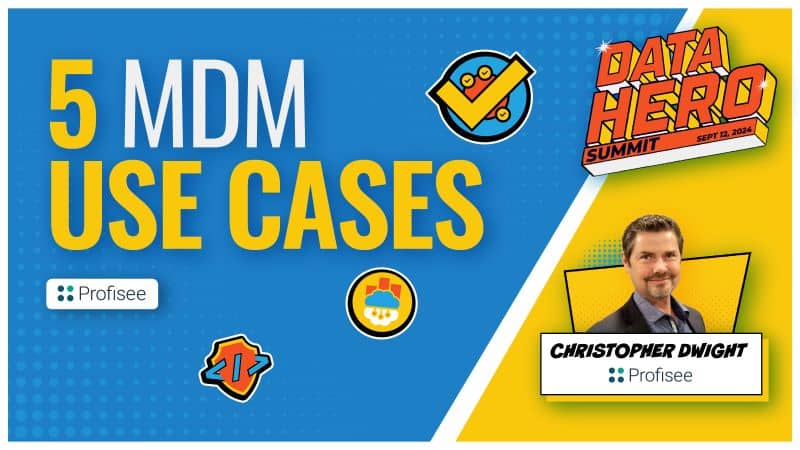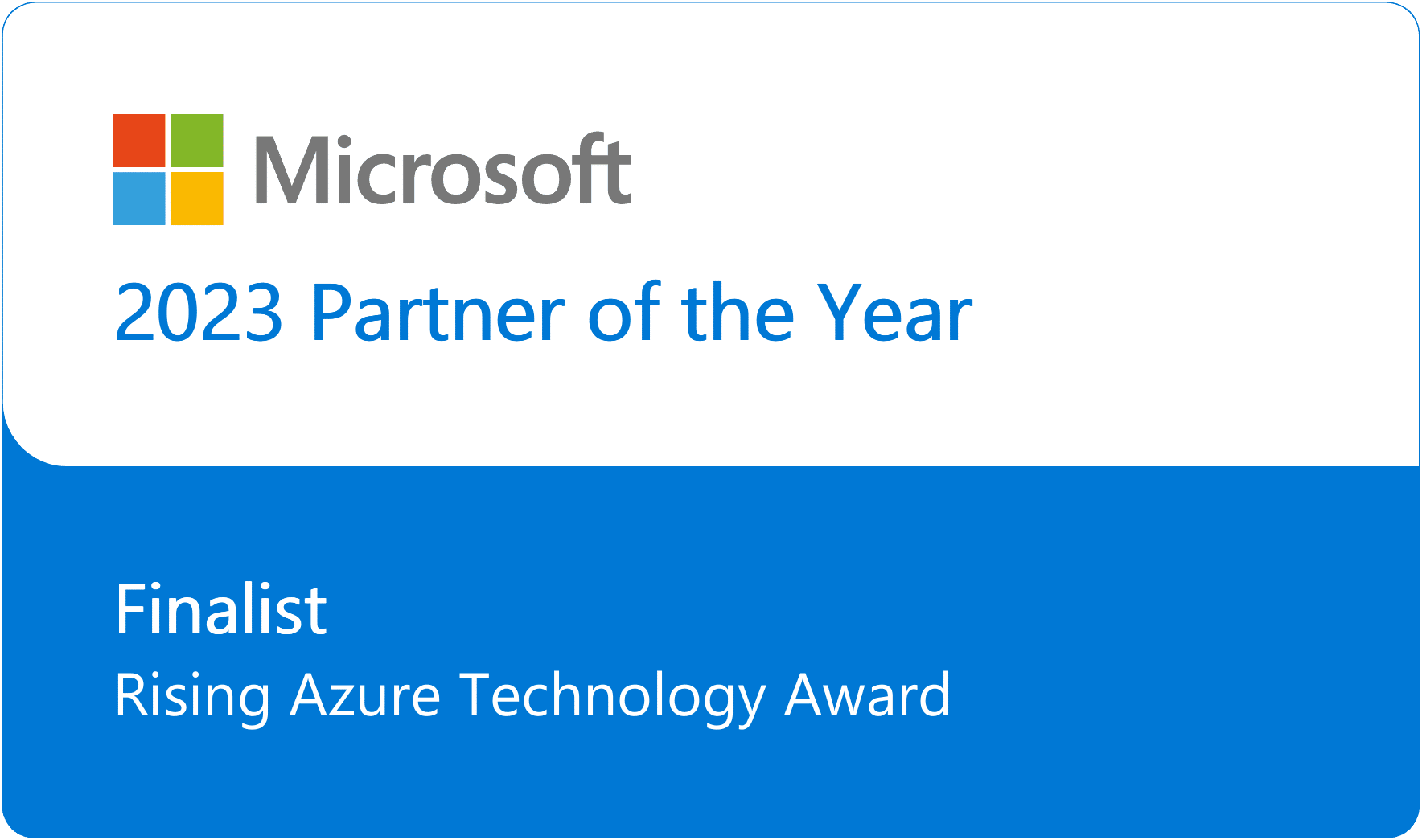In recent years, the world has undergone many major changes. The COVID-19 pandemic has drastically changed the way we work, communicate and do business as a whole. Despite the several different approaches organizations take to growing their business, today’s Chief Data Officers (CDOs) understand the mission-critical importance of initiating a digital transformation strategy. This involves a more strategic approach to managing their enterprise’s most critical master data.
For this reason, CDOs are implementing a master data management (MDM) platform as the central component of their transformation journey. For this process to be successful, organizations first must establish rules and standards for managing all enterprise data with MDM serving as the driving force. These rules are typically managed within an enterprise-wide data governance program.
Defining Business Outcomes for a Master Data Management Implementation
Any IT- or data-driven initiative must be closely aligned with quantifiable business outcomes that are critical to executive leadership. So it is important for CDOs to define their desired business outcomes when planning an MDM and/or enterprise initiative. This tailors the MDM deployment to cater to those initiatives by leveraging the critical data that create value for the business and it also helps organizations limit the scope of their initial MDM deployment.
To best utilize MDM, list out the areas of your business that you wish to enhance through higher quality data. The areas CDOs need to focus on include:
1. Customer Experience
This is the impression customers have of a business or brand throughout all aspects of the buyer’s journey. Whether this experience is positive or negative can have a significant impact on a business’s ability to grow and develop customers — and has a direct influence on revenue.
If you do not understand which products your customers are buying, what messages they’re responding to and what incremental products may meet their needs, your digital transformation will likely fail.
If you can’t identify and reduce friction in your current buying experiences, you’ll never be able to optimize the customer experience. MDM can clean and harmonize customer data across all your disparate systems, so you have a complete, 360-degree view of your customer. Only with this full picture of your customer along with their preferences and purchasing habits can your effectively improve the customer experience and ultimately increased revenue and improve customer satisfaction – which are all critical to digital transformation success.
2. Product Experience
The product experience refers to any interaction between a customer and the product. More specifically, it is the customer’s journey using your product or service from beginning to end. It generally spans from finding and buying the right product all the way through using it. Despite most assuming it exclusively relates to the purchasing process, it encompasses every step from purchase to the overall endgame.
Unified critical data may ensure product efficiency, quality checks, customer/order data, related analytics or several other pieces of information that play a part in the product’s success. If the product does not function properly, is difficult to use or purchase, is not durable or reliable or otherwise does not deliver on its expressed or implied promise to the customer, then you are only hurting your business and reputation within the marketplace.
3. Supply Chain
To maintain a steady revenue flow, there needs to be a proficient system for the production and distribution of the product or commodity. Critical data supporting this can include shipment/locational data, production quantities and product consumption to predict overall supply. If this data is not accurate, consistent or scaled across multiple systems, then it can lead to severe supply chain difficulties.
This has only been exacerbated by the additional stress that the COVID-19 pandemic has placed on global supply chains. According to McKinsey, many companies have only partially addressed the weaknesses in global supply chains exposed by the coronavirus pandemic. In the face of new challenges, finishing the job is even more urgent.
At the core of all these things is master data. CDOs have the opportunity of keeping an MDM strategy as a top priority for their organization. By ensuring their enterprise data is trustworthy, validated and accurate, they can better anticipate challenges in the supply chain and quickly respond.
Connecting Business Silos with Master Data Management
Many organizations understand the potential value that comes with resolving differences in data that exist across their individual business silos, including customer and supplier relationships. When critical enterprise data is siloed in disparate enterprise resource planning (ERP) or customer relationship management (CRM) systems, organizations struggle to make that data available to those who need it, much less extract real business value from it.
Because MDM harmonizes all critical data spanning several business systems, this then eliminates these isolated silos by connecting the information and allowing it to complement each type of data. When all the organization’s relevant data is centrally available, there is an inherent value that may have been otherwise undiscovered when managed as a silo.
Oftentimes, business silos intersect and/or overlap to reveal the untapped potential for significant business value. This can include the balance of trade, insights across customers and suppliers, instances where a customer is also a supplier and vice versa and more. Multiple customers can share a relationship with one another that was never previously made apparent to the supplier.
With an MDM platform, CDOs can enhance and/or reconfigure critical data to expose an entirely new set of values for significant business outcomes. This allows this information to be seen in an entirely new way than ever before.
Master Data Management as a Foundation for Data Standardization
Once the rules and standards have been established for the enterprise data, MDM enforces these standards across the entire business system. MDM serves as a foundation of any digital transformation by ensuring high-quality, trusted and complete data is available to the entire organization — regardless of where it originated. This benefits the business by changing internal functionalities such as the customer onboarding process, real-time insights, credit control, fraud prevention, cross-selling or upselling and so much more.
MDM ensures you have the clean data required to make informed business decisions for achieving your desired business outcomes that are at the core of your digital transformation. Without standardizing critical data, enforcing the established rules and leveraging the data to bring significant value to the organization, then a successful digital transformation cannot happen.
How Profisee Can Help
As important as it is to develop an MDM program for your business, it is also crucial to select a vendor that provides the right program for your unique business outcomes and strategic initiatives. At Profisee, we take a cloud-native approach to cleaning and unifying your critical data without wasting valuable time. Time is money, which is why we offer a clean and simplified deployment in as little as 90 days ensuring your important business information is clean, accurate and trustworthy.
However, the CDO is the ultimate decision-maker when deciding whether to develop an MDM program. For this reason, it is important for CDOs to understand the ins and outs of MDM and the value it can bring when delivering on your outcomes, goals and initiatives. In part two, we will be diving further into the advantages of an MDM implementation.
Next: How CDOs Can Benefit From Master Data Management Pt. 2: Data Management for Business Value

Malcolm Hawker
Head of Data Strategy @ Profisee

Malcolm Hawker
Malcolm Hawker is a former Gartner analyst and the Chief Data Officer at Profisee. Follow him on LinkedIn.















